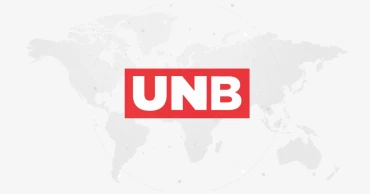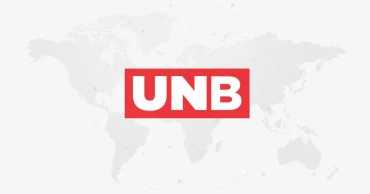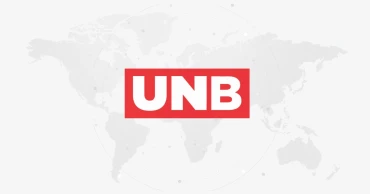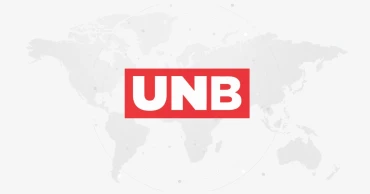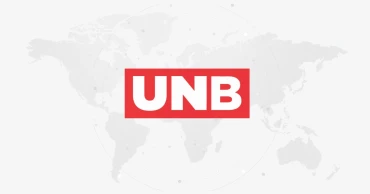Shares
DSEx and DS30 indexes slide while DSES up by 4.16 points in 1st hour
The Dhaka Stock Exchange (DSE), the country's main capital market, saw a decline in trading in the first hour on Sunday.
The 3 indexes of the Dhaka stock market DSEX and DS30 decreased while Shariah index DSES increased in the morning.
The main index DSEX decreased by 0.01 points to 5,194.42 points, the DSES Shariah index up by 4.16 points to 1166.10 points, and the DS30 special blue-chip index fell by 2.85 points to 1921.41 points during the first hour on Sunday.
Read: DSEX gains 9.42 points; 400 companies participate in trading
On the day, the trading record in the DSE shows that shares and units of 3.27 crore were exchanged through 31872 transactions. In the first hour, the market witnessed huge selling pressure, and shares and mutual funds worth Tk 101.9 crore were traded.
During this time, a total of 372 companies participated in trading. Among these, prices of 142 companies increased, 146 companies decreased and 84 companies remained unchanged at the DSE.
1 year ago
DSEX index gains 4.7 points in early trading
The Dhaka Stock Exchange (DSE), the country’s main capital market, showed an uptrend in trading during the first 1 hour and 30 minutes on Thursday.
All three indices of the Dhaka stock market—DSEX, DSES, and DS30—recorded changes in the initial session of the fifth working day of the week.
The benchmark index DSEX rose by 4.70 points, reaching 5,189.7 points. The DSES Shariah index gained 2.5 points, climbing to 1,160.86 points, while the DS30 blue-chip index slightly dipped by 0.07 points to 1,920.92.
During this period, the DSE reported that 4.37 crore shares and units were exchanged through 35,192 transactions.
Read: DSEX index down by 5.77 points, prices of 214 stocks drop
Despite high selling pressure in the first hour, shares and mutual funds worth Tk 99.7 crore were traded.
In total, 383 companies participated in trading. Among them, the prices of 210 companies increased, 81 decreased and 92 remained unchanged.
1 year ago
DSEX index gains 2.5 points, over 3 crore shares change hands in first hour today
The Dhaka Stock Exchange (DSE), the country's main capital market, saw an upward trend in the first hour today.
Shares and units of 3.01 crore were exchanged through 286870 transactions. During this time, shares and mutual funds worth Tk 90.4 crore were traded.
A total of 371 companies participated in trading. Among these, prices of 126 companies increased,158 companies decreased and 87 companies remained unchanged at the DSE.
The main index DSEX increased by 2.5 points to 5,224.11 points, the DSES Shariah index rose by 5.09 points to 1127.45 points, and the DS30 special blue chip fell by 1.4 points to 1939.7 points during the first hour on Sunday.
1 year ago
Stock market: Downward trend for fourth consecutive day
The Dhaka Stock Exchange (DSE) and Chittagong Stock Exchange (CSE) continued their downward trend on Thursday, marking the fourth consecutive day of falling indices this week. Despite an uptick in trading volume at the DSE, most companies saw declines in share prices, with market indices across both exchanges experiencing significant drops.
At the DSE, trading volume increased to Tk 306.89 crore, up from Tk 296.34 crore on the previous day, reflecting a rise of Tk 10.55 crore. However, this boost in trading activity did little to offset the overall decline in stock values.
DSE faces downturn for second consecutive day as most company shares decline
The DSE's benchmark index, DSEX, dropped by 58.23 points, closing at 5257.97 points. Other indices followed suit, with the DSES (Shariah) index down by 8.74 points to 1174.13 points, and the DS-30 index, which tracks the top 30 leading companies, falling by 17.58 points to 1930.39 points.
Out of the 395 companies and mutual funds traded on the DSE, only 53 companies posted gains, while a substantial 293 companies saw their share prices fall, and 49 remained unchanged.
Meanwhile, trading activity at the CSE dipped on Thursday. The total value of shares traded fell by Tk 3.31 crore to Tk 4.64 crore, down from Tk 7.95 crore on the previous day. Similar to the DSE, all major indices at the CSE also experienced declines.
The CASPI index, the main index of the CSE, decreased by 150.83 points, closing at 14821.49 points, while the CSCX index dropped by 87.63 points to 9012.55 points. Other indices, including the CSE-50, CSI, and CSE-30, also showed declines of 8.22 points, 8.14 points, and 103.52 points, respectively.
On Thursday, shares of 218 companies and mutual funds were traded at the CSE. Of these, the share prices of 41 companies rose, while 156 companies posted losses, and 21 companies remained unchanged.
1 year ago
Dhaka Stock Exchange sees early week gains
The Dhaka Stock Exchange (DSE), the country's main capital market, opened the week on a positive note as stock prices of the majority of listed companies showed an upward trend during Monday's trading session.
According to early market data, the DSEX, DSE's benchmark index, gained 3.49 points, reaching 5,382 points within the first hour of trading by 11 am. The Shariah-compliant index, known as DSES, also saw a rise of 3.90 points to 1,194 points, while the DS-30 index, which tracks the performance of blue-chip stocks, increased by 1.68 points, reaching 1,965 points.
Read: Dhaka Stock Exchange investors demand BSEC Chairman’s resignation amid market instability
During this period, a total of 89.95 crore shares and units were traded across the exchange. Market performance was mixed, with the share prices of 147 companies rising, 145 companies falling, and 74 companies remaining unchanged.
1 year ago
Jeff Bezos sells nearly 12 million Amazon shares worth at least $2 billion, with more to come
Jeff Bezos filed a statement with federal regulators indicating his sale of nearly 12 million shares of Amazon stock worth more than $2 billion.
The Amazon executive chairman notified the U.S. Securities and Exchange Commission of the sale of 11,997,698 shares of common stock on Feb. 7 and Feb. 8.
The collective value of the shares of Amazon, which is based in Seattle where he founded the company in a garage about three decades ago, was more than $2.04 billion, according to the listed price totals.
Read: US-Bangla Airlines welcomes first Airbus, another Boeing to expanding fleet
The stocks were grouped in five blocks between 1 million and more than 3.2 million.
In a separate SEC filing, Bezos listed the proposed sale of 50 million Amazon shares around Feb. 7 with an estimated market value of $8.4 billion.
Bezos stepped down as Amazon's CEO in 2021 to spend more time on his other projects, including the rocket company, Blue Origin, and his philanthropy. His address on the stock filings is listed as Seattle, although he reportedly has relocated to Miami.
Read more: February 2024 Amazon Prime Originals: Most-Hyped Shows, Series, and Movies
2 years ago
How to Buy Stocks: 10 Key Factors to Check
When it comes to investing, people usually look for effective strategies to make money. Some investors choose real estate, and mutual funds and others prefer stocks or bonds. Stocks can be a great choice for both short-term and long-term investments. Investing in stocks not only gives you the scope to make money but also makes you the owner of a part of a company. There are a few things to consider when selecting stocks for any company.
10 Essential Criteria to Consider for Selecting Stocks
For non-technical common investors, understanding stock market fluctuations is difficult. If you want to buy a stock, you must keep in mind some factors. Here are 10 factors you need to know, according to experts.
Company Background Analisis
Buying shares in a company means buying partial ownership of that company. So proper review of the qualitative aspects of that company is very important. You will need to check whether the company’s products or services are popular with its customers. Besides, don’t forget to check who is managing the company.
Read More: Shares vs Bonds: What is the Ideal Investment Opportunity
You can do a Google search or ask people you know about how the company’s managers are—whether they are trustworthy as your partner or not. Also, look for what is the competence, integrity, and innovation of the company’s managing director and other senior officers—their qualifications, training, business success, and more.
Price-to-Earnings (P/E) Ratio
The price-earnings ratio is a measure of how many times a company’s shares are selling for its earnings. If the earnings per share of a company are Tk5, and the market price of the share is Tk45, then the price-earnings ratio will be 9. This means that if the company distributes all of its earnings as dividends, it will take 9 years to recover the invested money.
But if the market price of the share was Tk 100, then the price-earnings ratio or PE ratio would be 20. That is, if the company’s income stream remains unchanged, it will take 20 years to return the investment. The market average P/E ratio is 20-30. The lower the PE ratio, the lower the risk of the investment.
Read More: Share Market Investment Guide: How to Invest in Stocks
Net Asset Value Per Share
Before buying a company’s share, check asset value per share. There should be an adjustment of the market price with this. However, unless the company goes into liquidation, the investor does not really care about the asset value.
Only shareholders can get a portion of those assets when the company is bankrupt. In this case, the bank loan and other dues are paid off before the sale price of the asset. After that, anything left over is distributed among the shareholders.
Earnings Per Share
Check the Earnings Per Share (EPS). However, it depends on the company. The more it is, the better. Higher EPS means higher dividend potential. If the EPS is low, the dividend potential is also low.
Read More: Saving vs. Investing Money: Know the Pros and Cons.
Capital Utilization Efficiency of The Company
A company that can invest more of its capital in more profitable projects is expected to benefit its shareholders. On the other hand, if a company invests a lot of capital in a less profitable project, its profits and share price have less possibility to improve.
For example, banks that have invested more capital in mobile banking or digital banking projects over the last 10 years have done much better in terms of profits and share prices than banks that have invested in stock brokerage projects.
Balance Sheet
Generally, companies whose financial debt is much higher than their total assets (over 60-70%) have a higher risk of losing their shareholders’ capital. So, one should be careful while investing in such companies.
Read More: Is Sanchayapatra a Good Investment in 2022?
Total Number of Shares
Before you buy stocks of any company, check their total number of shares and see how much it floats. According to the demand-supply formula, if the number of shares is low, its price is more likely to increase. On the other hand, if the number of shares is more, it is more readily available in the market.
In addition to that, it is better to buy shares that are traded regularly. Because if you need money on an urgent basis for any reason, it is possible to collect money easily by selling shares. But if you invest in shares that are not traded regularly, it is not possible to withdraw the investment on an emergency basis.
The Ratio of Authorized Capital to Paid-Up Capital
Issuance of bonuses and right shares is quite difficult if these two capital amounts are close. In this case, the company should increase the authorized capital earlier. Investors with a particular inclination towards bonus dividends should take note of these factors. A rule of thumb is that paid-up capital can never exceed authorized capital.
Read More: Plot vs Apartment: Which is the Better Investment Option?
Dividend Yield
The market value of the shares may be higher than the face value in most cases. Hence the dividend rate does not indicate the actual return. The dividend yield is the exact return of shares, which is the percentage of dividends received on the investment based on market value.
The dividend yield ratio is obtained by multiplying the declared dividend by 100 and dividing it by the market price of the respective shares. The higher the yield, the higher the investor’s earnings.
Track Record
Check the company’s last 3-4 years' track record. See how much it pays in dividends. Also, check the annual average price and try to buy shares close to this price.
Read More: Is Gold a Good Investment in 2022?
Final Words
So far, we have shared what to consider before buying stocks or shares. When buying a stock, remember profit must be ensured at the time of buying, not at the time of selling. That is, if you can buy shares at a good price, there will be a good chance of good profit. If you buy a share at a high price, the profit potential will decrease a little. Additionally, it should be remembered that hasty decision decisions are not good in the share market.
3 years ago
Shares vs Bonds: What is the Ideal Investment Opportunity
If someone thinks of investing their money, it almost universally comes down to two major ways – either through equity or debt. Equity is where an investor becomes a part owner of the invested company or business. Whereas debt is the traditional lending and borrowing process. Here the investor acts as the creditor and the return is the interest plus capital. Interestingly, these two concepts are also what define shares and bonds. So, Shares or bonds, what is the best investment stream? And more importantly, what’s right for you? Let’s find out.
What are Shares?
A share is a unit of measurement for a stock, which is the actual asset in which you invest. Shares make up the basis of equity investment. Here the investor invests to become a part owner of the company. The size of the owner depends on the number of shares bought. It also depends on the number of shares in circulation by the company.
Read More: Apartment Buying Mistakes to Avoid to Secure Your Investment
At its core, an investor or shareholder utilizes the high-risk, high-return factor of share investment. For example, if the company consistently performs well, the shareholder will enjoy a consistently high ROI. On the other hand, if a company performs, poorly, it will lead to a loss of investment.
Shareholders receive dividends annually based on the profit margin of the company. Depending on the business cycle, this margin can be high or even so low that there might be no dividend at all.
If an investor holds a substantial share in a company, they get a place on the board of directors where they can vote to decide the future course of the company. Shares essentially allow an individual investor to take responsibility and the implications are also simple. You share the profit as well as the loss in an equal manner, hence the high risk, high return factor.
Read More: Metaverse Real Estate Investment: Buying Land, Apartment, Property in Virtual World
Advantages of Shares Compared to Bonds
The main advantage of shares is the potential for high returns. Other investment opportunities can hardly provide a similar level of return possibilities. Shares also pay dividends which is another addition to lucrative profit margins.
The return on investment will grossly depend on the period of high profit or less. Since the instrument of investment for shares is equity, investors can expect proportional growth or loss on their investments. The same doesn’t hold for bonds.
Investors can input their ideas into the future process of a business with share investments. It makes for a more controlled and impactful investment compared to bonds.
Read More: Share Market Investment Guide: How to Invest in Stocks in Bangladesh
Disadvantages of Shares Compared to Bonds
The only disadvantage of shares compared to bonds are the high-risk factor. There is no way to understand how a business will perform given the volatile investment climate.
Every share is traded through a central stock exchange commission which may go through a gross fluctuation by the minute.
So if you’re risk-averse, chances are that shares aren’t really for you.
Read More: Making Investment Decisions: Factors to consider when investing money
What are Bonds?
You lend your friend a crisp 100-dollar bill and he pays you back 110 dollars the next month. The additional 10 dollars over the capital is the interest on top of the capital. Bonds follow this exact principle of debt instrument. Here the investor, who buys the bond, is the creditor, and the bond seller company or business is the debtor.
The investor (bond buyer) and the company (bond seller) essentially draw up a loan agreement. As part of the agreement, the company will pay back the invested sum within a certain date along with a regular fixed interest rate on top of the capital.
It's low risk with a low return but provides better security on the invested capital.
Read More: Plot vs Apartment: Which is the Better Investment Option?
Advantages of Bonds over Shares
The only advantage of bonds over shares is the low volatility. Unlike shares, bonds have a fixed return rate on top of the capital. Here, the investor knows upfront how much they will be getting out of the investment at the end of the cycle.
Even in case, the company goes bankrupt, the bond investors will get priority compared to the shareholders in returning the dues. As a result, the investments of bondholders are secured in both ways.
Disadvantages of Bonds Compared to Shares
The main disadvantage of bonds compared to shares are the reduced return and lack of equity. At the cost of security, bonds investor has to forego a substantial ROI generation. The bonds' investors do not get any say in the process and proceedings of the business which is otherwise possible with shares.
Read More: Is Sanchayapatra a Good Investment in 2022?
Lifecycle of Bonds and Shares
Both bonds and shares have their respective lifecycles which are often important for an investor to understand which investment cycle works best for them.
A share has typically 4 phases in its lifecycle – accumulation phase, markup phase, distribution phase, and downtrend phase. Each of these phases comes up cyclically where the price stabilizes, goes up, shareholders sell and the price tumbles again.
The bond lifecycle is much more simple compared to the shares. Here there’s a primary market where the bond gets issued, a secondary market where the bond gets traded, and finally maturity, where the investors get back their capital.
Read More: Is Gold a Good Investment in 2022?
The companies can use the resolved bonds at maturity to venture into new refinancing opportunities.
Shares vs. Bonds – Which One is the Better Investment Option?
Shares and bonds are both great investment options. But the choice of investment depends much on what you want out of your investment.
If you want a high return and aren’t worried about the associated risks, go for shares. But if you are more concerned about the security of the investment and returns are your secondary concern, then head over to the bond market.
Read More: Saving vs. Investing Money: Know the Pros and Cons
Final Words
Shares and bonds are both equally popular as investment opportunities. The process of investing through shares usually requires a BO account in a brokerage firm. On the other hand, a bond requires an agreement drawn out through a third party, usually a bank.
Both stocks and bonds are protected by strict government financial regulation with the former having its separate regulatory commission. So depending on your preference, both shares and bonds can be an effective way to increase your wealth base.
3 years ago
Asia shares rise on optimism about easing COVID restrictions
Asian shares advanced Monday across the board as buying set in after the lull of a U.S. national holiday.
Analysts said the optimism may be driven by expectations the U.S. may decide to cut Chinese tariffs, a welcome move that would also help tame inflation.
China’s Commerce Ministry said Tuesday that Vice Premier Liu He spoke with Treasury Secretary Janet Yellen about coordinating economic policy between the two biggest economies and maintaining the stability of supply chains.
In a statement, it also said the Chinese side “expressed its concern over issues such as the removal of additional tariffs and sanctions imposed by the United States on China and fair treatment of Chinese companies.” The two sides agreed to continue their discussions, it said.
Investors also have been encouraged by the lifting of restrictions related to the coronavirus pandemic across the region, including in Japan, which had been booming with tourists from abroad ahead of the pandemic.
“The quiet economic calendar yesterday brings sentiments to focus on the single relief headline of a potential US tariff-easing decision, which could run the risks of a sharp paring back in speculative bullish bets in the event of any inaction,” in taming inflation,” Yeap Jun Rong, a market strategist at IG in Singapore, said in a commentary.
But risks remain because of inflation and slowing economic activity in some countries. A resurgence in COVID-19 infections in Europe, the U.S. and parts of Asia is also looming, bringing the threat of a reversion to pandemic precautions.
Japan’s benchmark Nikkei 225 added nearly 1.0% in morning trading to 26,404.90. Australia’s S&P/ASX 200 rose 0.3% to 6,632.00. South Korea’s Kospi jumped 1.8% to 2,342.24. Hong Kong’s Hang Seng gained 0.8% to 21,997.04, while the Shanghai Composite inched up 0.1% to 3,409.95.
Market players are also closely watching for an interest rate decision by the Reserve Bank of Australia. It is expected to raise its key rate by 50 basis-points. Minutes of the latest policy meeting of the Federal Reserve are also due out on Wednesday and could bring hints on future policy.
Read: Asian shares gain as investors shrug off downbeat data
Global investors have been worried about surging inflation and the possibility that higher interest rates could bring on a recession in some economies. U.S. trading was closed Monday for Independence Day.
The futures for the Dow industrials and the S&P 500 were both up 0.4% early Tuesday.
Shares ended last week with a rally, with the S&P 500 surging 1.1%. The Dow gained 1% and the Nasdaq rose 0.9%. The Russell 2000 index of smaller companies gained 1.2%.
In the first half of this year, the S&P 500 had its worst performance since the first six months in 1970. It’s now down 20.2% from the peak it set at the beginning of this year.
The risk of a recession is simmering as the U.S. Federal Reserve aggressively hikes interest rates. The Fed is raising rates to purposefully slow economic growth to help cool inflation, but could potentially go too far and bring on a recession.
In Germany, Chancellor Olaf Scholz gathered top employer and labor union representatives at his Berlin office Monday to seek ways of addressing the impact of rising prices while preventing a spiral of inflation in Europe’s biggest economy.
In energy trading, benchmark U.S. crude surged $1.87 to $110.30 a barrel. It gained $2.67 on Friday to $108.43 a barrel. Trading was closed Monday. Brent crude, the international standard, lost 3 cents to $113.47 a barrel.
In currency trading, the U.S. dollar edged up to 136.15 Japanese yen from 135.69 yen. The euro cost $1.0434, up from $1.0423.
3 years ago
Asian shares fall amid interest rate, earnings worries
Asian shares declined Monday after U.S. stocks ended last week on a tumble as global markets’ expectations for higher interest rates continued to set the tone.
Japan’s benchmark Nikkei 225 lost 1.9% in morning trading to 26,583.70. South Korea’s Kospi slipped 1.6% to 2,661.94. Hong Kong’s Hang Seng dropped 2.8% to 20,064.32, while the Shanghai Composite shed 2.4% to 3,012.93. Trading was closed in Australia for Anzac Day, a national holiday.
The news that Emmanuel Macron won the run-off French presidential election over the weekend, clinching a second term as was widely expected, reassured markets that France won’t abruptly shift course in the midst of the war in Ukraine.
Read: Asian stocks mixed, oil falls as Russian attacks intensify
But a significant show from contender Marine Le Pen, a populist and nationalist, served as a reminder of how fragile that situation might be, analysts said. Le Pen pledged to dilute French ties with the EU, NATO and Germany, and spoke out against EU sanctions on Russian energy supplies.
Rising COVID-19 cases in China are setting off worries about more pandemic lockdowns that would crimp economic recoveries in the region. Other nations are also dealing with economic woes related to COVID-19, such as the absence of tourism revenue in Japan, where cases are still going up and down while it gradually opens its borders, but only to business travelers.
Investors are also watching profit reports from companies, including Japanese big names that are coming in weeks ahead. Several reports from U.S. companies, which have already been released, have been disappointing, contributing to the fall that ended last week on Wall Street.
What the U.S. Federal Reserve might do is high on investors’ minds. The chair of the Federal Reserve has indicated the central bank may hike short-term interest rates by double the usual amount at upcoming meetings, starting in two weeks. The Fed has already raised its key overnight rate once, the first such increase since 2018.
The S&P 500 fell 2.8% Friday to 4,271.78, marking its third losing week in a row. The Dow dropped 2.8% to 33,811.40, its biggest drop in 18 months. The Nasdaq lost 2.6%, closing at 12,839.29. The Dow and Nasdaq also posted losses for the week.
Read: Upto 50% of hotels, motels booked already for Eid holidays
Smaller company stocks also fell sharply. The Russell 2000 slid 2.6% to 1,940.66.
“Coming after the heavy sell-off in Wall Street to end last week, overall risk appetite in the region may come under pressure as well,” said Yeap Jun Rong, market strategist at IG in Singapore.
Markets around the world are feeling similar pressure on rates and inflation, particularly in Europe as the war in Ukraine pushes up oil, gas and food costs.
In energy trading, benchmark U.S. crude lost $2.91 to $99.16 a barrel in electronic trading on the New York Mercantile Exchange. Brent crude, the international standard, fell $2.93 to $103.72 a barrel.
In currency trading, the U.S. dollar edged down to 128.51 Japanese yen from 128.59 yen. The euro cost $1.0789, down from $1.0803.
3 years ago





